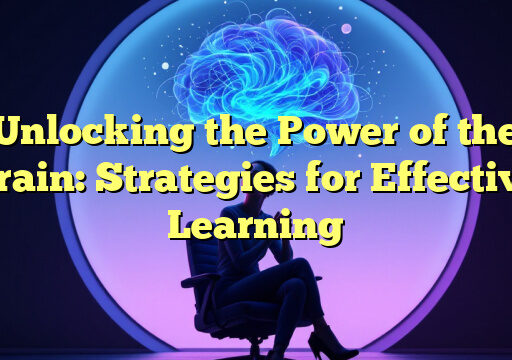Our brain is an incredible organ that plays a vital role in our ability to learn and acquire new information. From processing sensory input to storing memories, the brain is constantly working behind the scenes to help us navigate the world around us.
The Science of Learning
When we learn something new, our brain undergoes a series of complex processes that involve multiple regions working together in harmony. One key aspect of learning is memory formation, which involves the encoding, consolidation, and retrieval of information.
Neuroplasticity, or the brain's ability to reorganize itself by forming new neural connections, is another crucial factor in learning. By engaging in activities that challenge the brain, such as learning a new language or playing a musical instrument, we can strengthen existing neural pathways and create new ones.
Several neurotransmitters, such as dopamine and serotonin, play a role in regulating our mood, motivation, and ability to learn. When these neurotransmitters are imbalanced, it can impact our cognitive function and hinder our learning capabilities.
Factors Influencing Learning
While the brain is a powerful tool for learning, several factors can influence its ability to acquire new information. These factors include genetics, environment, and individual differences in cognitive abilities.
Genetics can play a role in determining an individual's predisposition to certain learning disorders, such as dyslexia or ADHD. Similarly, environmental factors, such as access to education and socioeconomic status, can impact a person's ability to learn and succeed academically.
Individual differences in cognitive abilities, such as attention span and working memory capacity, can also influence how effectively someone learns new information. By understanding these factors, educators and learners can tailor their approaches to optimize the learning process.
Conclusion
Our brain is a remarkable organ that plays a critical role in our ability to learn and acquire new information. By understanding the science of learning and the factors that influence it, we can harness the power of our brains to reach our full potential.
FAQs
What is neuroplasticity?
Neuroplasticity refers to the brain's ability to reorganize itself by forming new neural connections. This process allows us to adapt to new experiences and learn new skills throughout our lives.
How can I improve my brain for learning?
Engaging in activities that challenge the brain, such as puzzles, games, and learning new skills, can help strengthen existing neural pathways and improve cognitive function. Additionally, maintaining a healthy lifestyle through proper nutrition, exercise, and sleep can also support brain health and optimal learning.
What role do neurotransmitters play in learning?
Neurotransmitters, such as dopamine and serotonin, play a key role in regulating mood, motivation, and cognitive function. Imbalances in these neurotransmitters can impact our ability to learn and retain new information.





